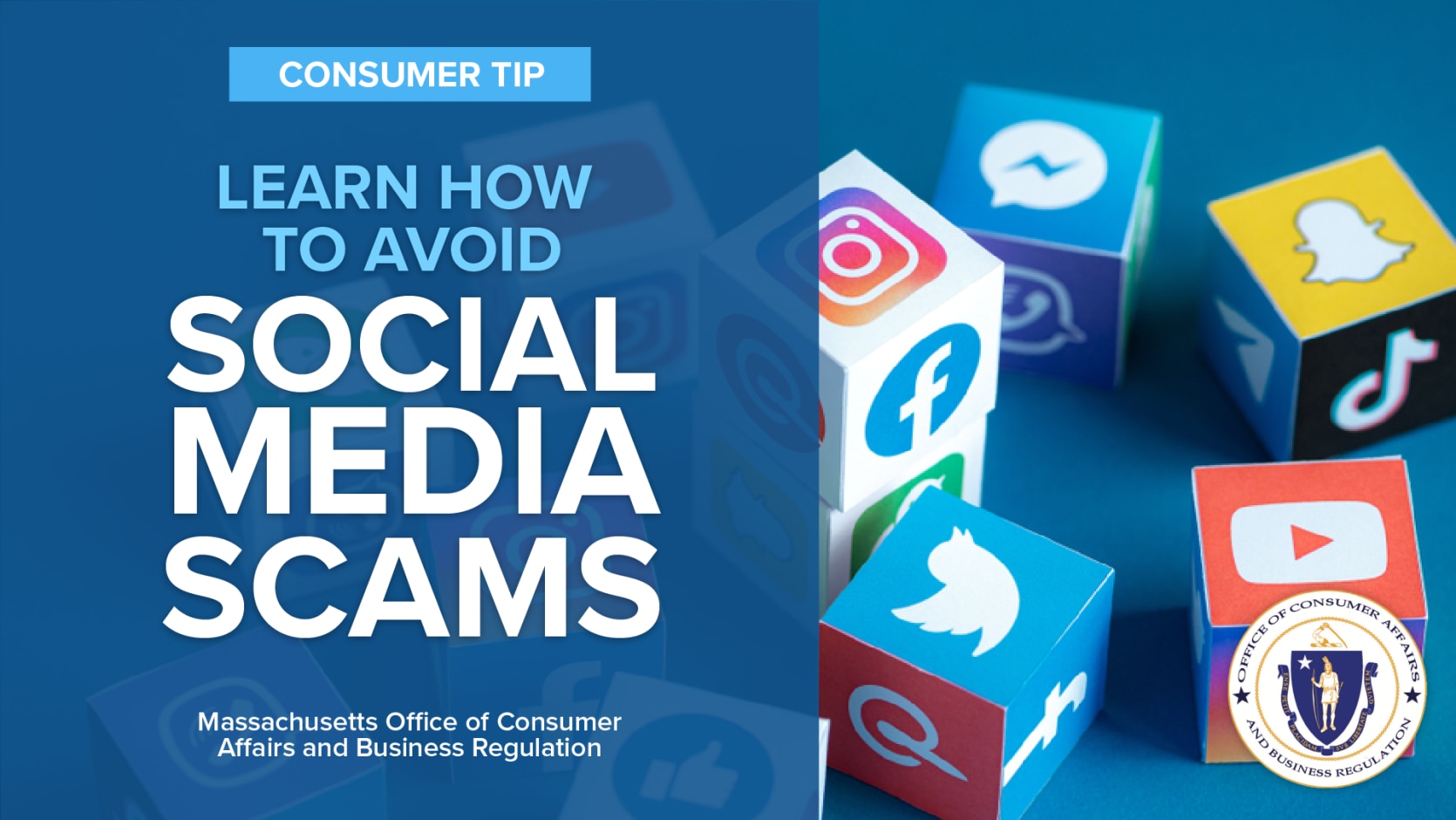- Office of Consumer Affairs and Business Regulation

Scams are everywhere, especially on social media. According to the Federal Trade Commission (FTC), one in four people on social media reported losing money to fraud in 2021. While most of these social media scams have been around for a while, users should remain vigilant while scrolling through their feed and direct messages.
The FTC further reports users ages 18 to 39 were the most vulnerable last year and twice as likely as other age groups to report losing money to social media scams. In an effort to protect our followers, the Office of Consumer Affairs and Business Regulation compiled a list of the most common social media platform scams to look out for this month.
- Blue-check scam: On Twitter and Instagram, accounts of celebrities, athletes, politicians, and other important individuals, or influencers, can be identified by a blue-check to verify the profile. Users desire this blue check, and scammers have been known to manipulate algorithms or purchase followers in order obtain a verified account. Twitter recently announced a subscription service allowing users to purchase a blue-check for a monthly fee. Keep in mind that these platforms allow only one verified account per person or organization. Ensure when gathering information or entering any sweepstakes that you are interacting with a legitimate verified account.
- Business opportunity scam: Social media fraudsters present their followers with opportunities to get paid to promote products. These offers often tell consumers to a pay one-time fee for a starter kit arriving via mail. However, the kits never comes, and your personal information and investment were stolen.
- Complaint scam: Oftentimes, patrons bring complaints to social media by tagging the business account. Scammers capitalize on this practice by swooping in impersonating the organization in direct messages. Make sure you are communicating with the correct account, and never provide any personal information or payment to anyone you do not know.
- Pay for follower scam: Scammers promise to connect you with other accounts that will follow back, in exchange for a fee. Usually engaging in these practices will get you banned from the platform all-together. Social media users looking to quickly increase their following often fall victim to this scam.
- Fake advertisement scam. Con artists purchase fake advertisements including a call to action to provide personal information to obtain a discount or rebate. Confirm offers on organization’s websites or contact a representative before providing any sensitive details in response to a social advertisement.
Social media should be fun, and allow you to connect with your friends, family, and other users you come across in real-life. Remember to take your time and be sure you are communicating with the authentic account of the person or business they claim to be. And finally, never take advantage of exclusive opportunities without confirming the offer outside of the social media platform.
If you believe you have fallen victim to a social media scam, report it to the Federal Trade Commission at www.ftc.gov or 202-326-2222. Visit the Office of Consumer Affairs’ website for more information about avoiding scams and fraud.

